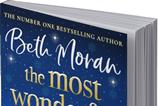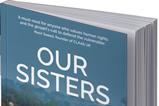Hosted by Claire Musters
This month I’m reading…
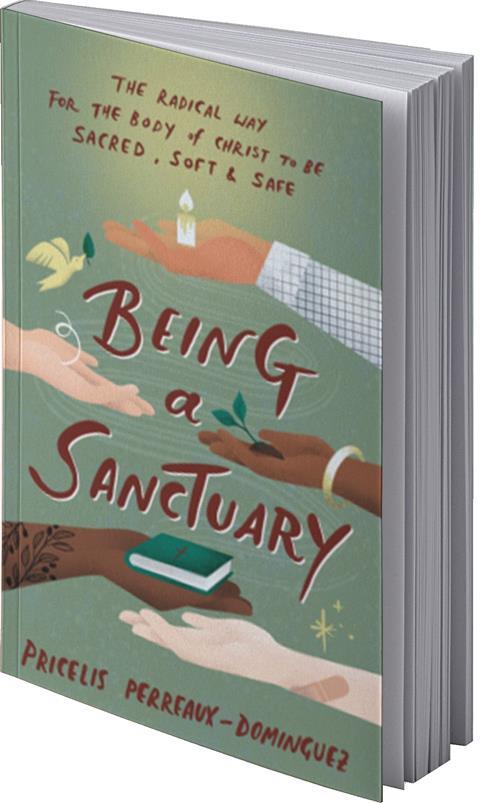
Being a Sanctuary By Pricelis Perreaux-Dominguez (Brazos Press, 978-1587436413)
This book starts with a punch: “It’s no secret that the Body of Christ is in a crisis.” But what it does in response is gently and thoughtfully highlight the problems, as well as the invitations the author sees within scripture to “lean more into Christ”. Looking at the word of God, church history, theologians and activities, Pricelis begins by explaining what she means by crisis: the Church is experiencing so much division, there are many people walking away and deconstructing their faith – we are in a time of deep difficulty.
And that is why this book is such a breath of fresh air. Because the author recognises that this is a pivotal moment of opportunity – to decide whether we recover or die. Interestingly, she believes we need to do both.
The book is divided into three sections: sacred (from passivity to responsibility), soft (from collision to compassion) and safe (from observing to responding). There are also four ‘moments to selah’ – to pause to stop and listen to God’s voice. At the end of each chapter are practical sections to help the reader engage more personally with what they have just read: radical thoughts (a summary of ideas contained in the chapter), reflective questions, restorative meditation (based on breath prayers) and remain in scripture (passages that dig deeper into the thoughts raised in the chapter).
What was your experience in writing the book, and how did you address the questions that you indicate were going around your head as you did so (such as “will people see me as an angry Black woman?” and “will I be seen as bitter because of my church wounds?”)
The writing of this book was a deep walk with Jesus because I had to look at the things with an open heart and mind – the Bible, my past experiences of pain and the present state of the Church. Being intentional about all three helped me write from a place of healing as well as from a place of seeking the Holy Spirit’s wisdom beyond my own. As for the questions, they are still questions I wrestle with because I’m still a Black woman and my experiences in church will always have included certain wounds. That will always be my identity and story, but because God is good and kind, he redeems all and helps us walk in this world even if we are misunderstood. I find deep comfort that my saviour too was misunderstood, so he knows how I feel.
Could you describe what you mean when you say the body is meant to be a sanctuary, and why that is so radical?
The truth is, I wish it wasn’t radical to be a sanctuary. I wish it was a norm that we all entered into. But that’s just not the reality of our world for many reasons. The word sanctuary itself is meant to be a place of safety, being seen and being given tools to be supported. In the USA we have something called ‘sanctuary’ cities that do just that for immigrants. And although it’s not used as much as it used to, the places where church services happen on Sundays are often called sanctuaries and these are the spaces we should also feel safe, be seen and be given tools to be supported. But sanctuary is not just a place; it is also a people – the body of Christ. Because we have the Holy Spirit, everywhere we are should be a sacred, soft and safe place for all people and to the glory of God.
You say the Church has a listening problem – could you expand on that a little here?
I believe our lack of listening is seen by our fruit. If we listened to God more, to wise biblical teachers and to mature pastors, then we would be living out the gospel much more differently. What I find is that we are listening to the wrong things and people. We are listening to our hearts (which is not completely bad but also not what we should be fully led by), we are listening to our minds, which are filled with all different kinds of ideas and planted trauma, we are listening to false teachers who seem charismatic and encouraging, we are listening to the world and what it finds to be ‘good’, we are listening to the enemy and the lies he’s spreading throughout the world. We have a listening problem because we aren’t stopping to listen (selah) and when we do, we listen to the wrong things and people.
You say: “the Starbucks model of language affects a church’s evangelism, uniqueness, identity, mutuality, and honor in a local neighborhood” – could you unpack that and explain why you believe true unity is the opposite of it?
My parents are from the Dominican Republic and that culture is very different from culture in the United States. If I were to take church plant models we use in the USA and take them to the Dominican Republic then I would be doing a huge disservice to the people there because I wouldn’t be considering their unique culture, ways and community and because those things matter and God was intentional to form these groups of people in this way. You know how some people say all children aren’t the same so you shouldn’t talk, correct, encourage or even teach them the same? Well, the same goes for adults – yet, we have misunderstood that unity doesn’t mean we all look, sound, think, live and talk the same: God didn’t make robots. Instead, unity is the choice to come together for the purpose of knowing, living out and sharing the gospel – however that may uniquely look in each of our lives based on who we are, where we live and who we are ministering to.
You talk about how our churches are very much segregated, but say this goes beyond race – could you expand on that here?
We are also segregated by gender, age, relationship status, disabilities, socioeconomic status etc. I’m all for women’s and men’s ministries but I find that we have to create more room for unification between brothers and sisters in the faith since that’s exactly what we are. I’m for kids’ church (to a certain extent) and youth ministry but we must create more opportunities for Christians of all ages to be around each other to learn from one another beyond a Sunday service. There are churches who have a ‘section’ for people in a wheelchair instead of setting up their sanctuary in such a way that people in wheelchairs can sit in different places throughout so they aren’t in an ‘othered’ section. There are plenty more examples of these kinds of things in the book!
You say that “one of the biggest ways the enemy is separating the church today is by convincing us that our stances must develop into sides” that will not listen to one another. How can we learn to disagree well, and “put souls before stances and sides”?
We do this by looking at the bigger picture. Choosing to be so focused on our stance and side sometimes even makes us forget the gospel and its bigger purpose. We should want to see souls that God wants to save or, if already saved, he wants to edify – beyond what our opinion, theology or perspective is. It doesn’t mean that those things don’t matter but people must matter more.
Pricelis Perreaux-Dominguez on: The books that have changed my life
Rise of the Truth Teller by Ashley Abercrombie
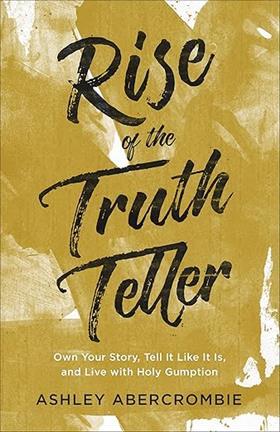
This book was written by a dear friend but it was also the first Christian book I read that was genuinely honest. I’ve gone through many things in my life and felt when I read Christian books I just ran into fluff and empty encouragement. When I read this book I didn’t feel that at all. I felt seen.
The Brief Wondrous Life of Oscar Wao by Junot Díaz
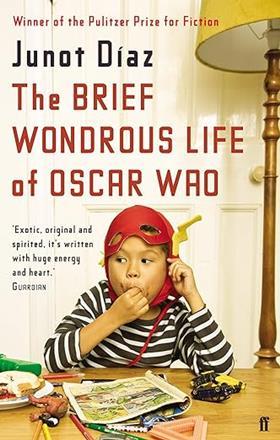
I’m Dominican and this book is about a Dominican community, but I especially found it powerful because it’s the story of a unique Dominican boy that isn’t typical. It’s tragic but incredibly well written and felt like I was home when I was reading it.
The Knowledge of the Holy by AW Tozer
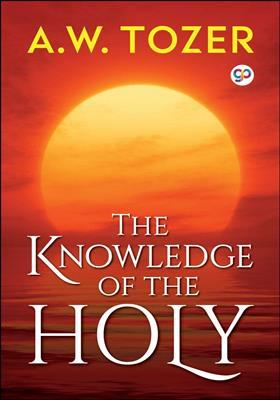
There hasn’t been a book that has edified me and taught me about God as much as this book has, outside of the Bible.













